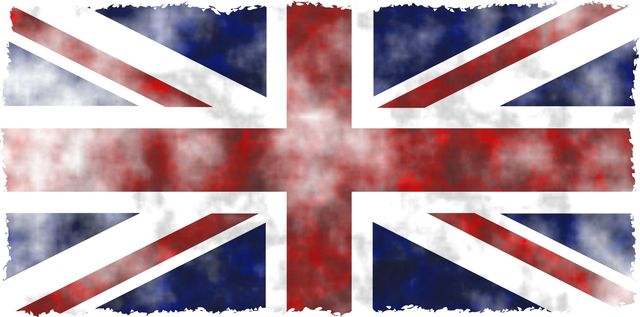
Heading back to Blighty? A guide to British slang.NeedPix / Public Domain
Shaped by loads of inscrutable slang, the British tongue—expressive, a tad rough and full of character—actually has a somewhat different shape.
To help keep your next trip across the pond as linguistically stress-free as possible, here’s our glossary with 20 of the most colorful British words and idioms.
Don’t get your knickers in a twist!
Translation: Calm down! This one might sound a little lewd or sexist to American ears. It does, after all, refer to one’s underwear (knickers) and somewhat implies female hysteria. But it’s considered fairly mild and harmless (though maybe just a tad emasculating when applied to men). “It’s a harmless phrase, so don’t get your kickers in a twist!”
Queue
Translation: Line. Replace “Standing in line” with “waiting in a queue.” But even though it is a homonym for “cue,” it is an entirely different word. And you’ll hear it quite a bit as, for some reason, British people love forming lines, or, as they say, queueing up!
Whinge
Translation: Complain. “Stop whinging about the long queue, you brat!” It’s an even more piercing insult when you turn it into a noun. “He’s a whinger! Always talking about how hard things are.”
Served at Her Majesty’s pleasure
Translation: Spent time in jail. Sounds great, doesn’t it? Like working for the president. But if you’re at a dinner party and someone mentions that they “served three years at Her Majesty’s Pleasure,” don’t be so impressed—and check your wallet.
Chinwag
Translation: To chat. This one has a nice connotation to it. Without any clarification, it implies friendly talk. “I met him at the pub and we chinwagged about the Brexit.” We’re told this is a fairly old bit of slang, mostly used by pensioners.
Bog
Translation: Toilet. It sounds little gross, but it’s pretty common. “Sorry! No time to chinwag! I drank at the pub and now really need the bog!” Also, as expected, “bog paper” means “toilet paper.”
Bob’s your uncle!
Translation: It’s done! If you actually have an uncle named Bob, it might be confusing, but it means things are sorted. All finished! For example: “I waited in the queue and got you that bog paper you wanted. Bob’s your uncle!”
Chuffed
Translation: Happy. “I’m chuffed because my job is finished. Nothing left to do. Bob’s your uncle!”
Having a kip/Get some kip
Translation: Taking a nap. The word “kip” was once a euphemism for a whorehouse, but it’s somehow morphed into nap over the centuries. “I’m exhausted after waiting in that queue so long. Not to whinge, but I’d really like to get some kip.”
Back to Blighty
Translation: Back to Britain. You probably won’t hear this one during your vacation there as Britons reserve the saying for when they’re out of their own country. “Can’t wait to go back to Blighty and get some kip in my own country!”
Copping off, Knacking on, Tashing on
Translation: Kissing. Unless you’re hanging out with teenagers, you might not hear these euphemisms for making out. “We copped off behind the bleachers!”
Gordon Bennett!
Translation: An exclamation of surprise like “Oh my god!” or “Goodness!” For example, “I saw teenagers copping off in the queue! Gordon Bennet!” (In case you’re wondering, yes, Gordon Bennett was a real person—two, in fact! The first, a Scot who founded the New York Herald in 1835, was notorious for his tabloid journalism. But it was his son, Gordon Bennett, Jr., who inspired the phrase with his even more notorious antics, including, allegedly, getting so drunk at a party that he confused the fireplace with the bog.)
Gobsmacked
Translation: Astonished, flabbergasted, overwhelmed. Considering the word “gob” is used for mouth in parts of the UK, “gobsmacked” implies being shocked into silence. “I couldn’t think of anything to say; I was gobsmacked when she told us she’d served 15 years at Her Majesty’s Pleasure for human trafficking!”
Skive off / Bunk off
Translation: To avoid or get out of something. “My aunt wanted to chinwag about my future so I skived off to get some kip.”
Craic
Translation: News or gossip. Usually used in the phrase “What’s the craic?” as a conversation starter. Similar to “What’s up?”
See a man about a dog
This idiom is used as a way of excusing yourself without disclosing the specifics. It can often be used as a euphemism for going to the bathroom, i.e., “Do we have any bog paper? I’ve got to see a man about a dog.”
Gutted
Translation: Devastated. “Her boyfriend broke up with her; she’s gutted!”
Peckish
Translation: Hungry. “Are you feeling a tad peckish? Do you want something to eat?” This one has a nice intuitive quality about it. Anyone who’s seen a bird eat might guess it.
Damp squib
Translation: A disappointment. Squib, a type of firework, won’t explode when wet. “Thought I’d be chuffed to see the band, but they got peckish, ate some bad fish and spent all night in the bog. The whole thing was a damp squib.”
Lost the plot
Translation: Act irrational or crazy. “Gordon Bennett has really lost the plot! He got so pissed at the party that he used the fireplace as the bog! And didn’t even say he needed to ‘see a man about a dog’ first! His fiancee must be totally gutted.”
* Originally published in 2016.





Comments